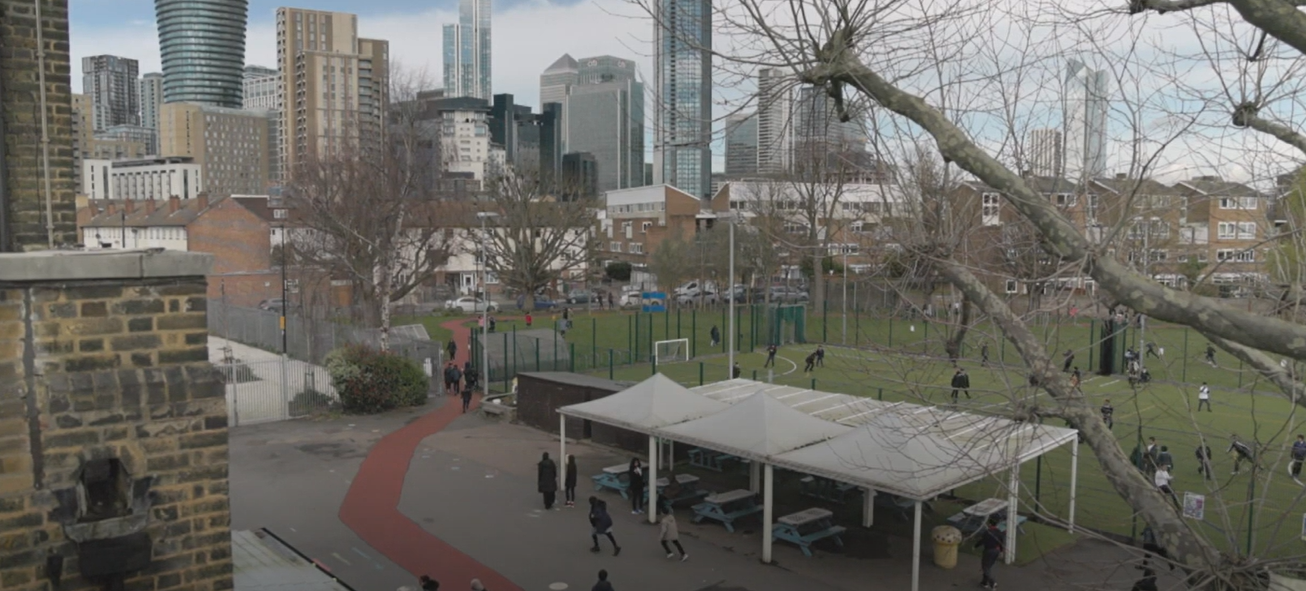Cubitt Town Primary School
346 students on roll
50% of students eligible for free school meals
Mixed, primary school
Tower Hamlets
Across the school community, oracy is nurtured by everyday interactions and is visible, showcases and celebrated throughout school life.
Oracy is visible, showcased and celebrated throughout school life through initiatives and displays. Every month, oracy stars of the month are on display around the school, and are celebrated at assemblies. This motivates students to continually improve their oracy skills, while also keeping oracy in the regular routine of the school.
Oracy is also present in the school outside of the classroom; oracy on the playground encourages students to use their voices to resolve conflict and calmly discuss any problems that arise. During lunchtime, Cubitt Town has a different discussion point each day to talk about around the table.
Students across the school feel that their voice is valued, and that school life is not dominated by adult voices.
.png)
A culture of oracy across the school
Students also have opportunities to use their voice in different contexts and engage in more ‘high-stakes’ opportunities through oracy assemblies and whole-school events such as poetry slams. Prefects run assemblies, which gives them the opportunity to use presentational talk in a variety of contexts, including high-stakes contexts. The regular recognition ensures that oracy is always at the forefront of the school community, and is both regularly celebrated and also a part of everyday school life.
These events and initiatives have created a strong, supportive culture of oracy embedded across the school where all students feel confident to share their thoughts, feelings and opinions with each other. They have also ensured that students across the school feel that their voice is valued, and that school life is not dominated by adult voices.

Linguistic diversity
When Cubitt Town decided to revamp their curriculum, they found that the old curriculum did not track with the lived experiences of the students. It was a priority for the school to make children feel seen and included, so the redesign of the curriculum prioritised the lived experience of Cubitt Town’s students. The school also wanted to highlight that oracy is not specific to spoken English, but is something that families can do at home in their first language.
Not only is multilingualism valued and celebrated, Cubitt Town highlights and celebrates linguistic diversity more explicitly, for example, as part of curriculum units on the local area and Bangladesh.
